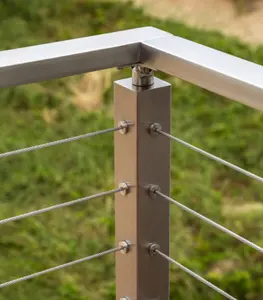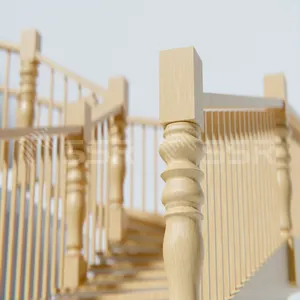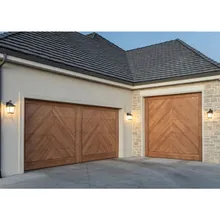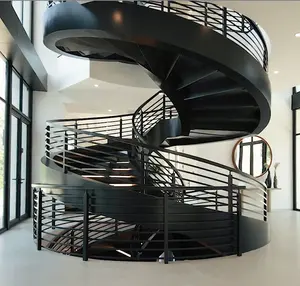Exploring the Versatility of Wood Stairs
Wood stairs are a timeless component in both traditional and contemporary architecture, offering a blend of functionality and aesthetic appeal. As a central element in many structures, they connect different levels with ease and elegance. The versatility of wood as a material for staircases allows for a wide range of designs, from grand wooden staircase statements to compact wood stairwells in private homes.
Components and Craftsmanship
Every wooden staircase is composed of several key components that ensure its stability and usability. The foundation of any staircase is the stair stringers, which support the steps and provide structural integrity. The steps themselves are made up of two parts: the step treads, where one walks, and the step risers, the vertical sections that connect each tread. Handrails and wooden banisters are also integral, offering support and safety for users. Wooden handrails for steps not only enhance safety but also add to the visual appeal of the staircase.
Materials and Features
The choice of wood for staircases is crucial, as it affects both the appearance and durability of the stairs. Options range from softwoods to hardwood handrails for stairs, each offering unique grains, colors, and textures. Stairparts made from wood not only provide a warm and inviting look but also stand the test of time with proper care. For additional safety, stair nosings may be included, which are especially beneficial in public spaces or homes with vulnerable individuals. These features help to prevent slips and falls, and when designed with contrasting colors or textures, they can aid those with visual impairments.
Design and Aesthetics
A wooden staircase can serve as a stunning focal point in any building. The design possibilities are endless, from elegant spirals to bold, straight-lined structures. Wood railings for steps can be crafted to match the overall design, whether it's a sleek, modern look or a more ornate, classic style. Wooden banister rails and wooden handrails can be customized to complement the staircase's design, ensuring a cohesive and harmonious aesthetic throughout the space.
Safety and Accessibility
When it comes to stair safety, wood stairs and railings play a pivotal role. Handrails for wooden steps are not just a design choice but a necessity for providing stability and support. For enhanced safety, wooden railings for staircases can be designed to meet various building codes and safety standards, ensuring that they are suitable for users of all ages and abilities. The addition of tactile elements like braille can further make wood stairs accessible to those with visual impairments, ensuring inclusivity in design.
Environmental Considerations
Wooden stairwells not only offer beauty and functionality but also bring an element of environmental consciousness to construction. Wood is a renewable resource, and when sourced sustainably, it can be an eco-friendly choice for builders and architects looking to reduce their carbon footprint. Additionally, wood's natural insulation properties can contribute to energy efficiency within a building.












































 浙公网安备 33010002000092号
浙公网安备 33010002000092号 浙B2-20120091-4
浙B2-20120091-4